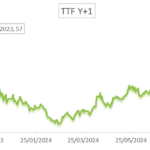
European Market Outlook…
September 26, 2024Global Leaders Urge Investment In Clean Energy As Developing Nations Seek Support…
October 2, 2024The International Energy Agency (IEA) has emphasised that while the global goal to triple renewable energy capacity by 2030 remains attainable, achieving this target will require substantial investments, particularly in power grids and energy storage systems. This ambition was reaffirmed at the COP28 climate summit in late 2023, where almost 200 countries committed to boosting renewable capacity and doubling energy efficiency rates to keep the Paris Agreement’s target of limiting global warming to 1.5°C within reach.
However, the IEA warns that, under current policies, the necessary improvements in energy efficiency seem far from achievable. While the world is on track to meet more than 75% of the required growth in renewable capacity, this will not suffice without simultaneous advancements in infrastructure. Specifically, over 25 million kilometers of new or upgraded electricity grids will be needed by 2030, alongside a dramatic rise in energy storage, particularly battery storage, which must increase nearly 15-fold to 1,200 GW.
Challenges in the renewable energy sector, including high interest rates, supply chain disruptions, and policy uncertainties, slowed progress in 2023. The IEA stressed that increasing renewable capacity alone will not automatically reduce fossil fuel reliance or lower energy costs unless infrastructure and policy frameworks are optimized to support the transition.
